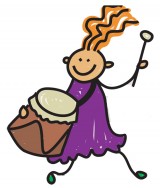Find out what goes on in Kath Davies’ classroom, Teaching Award winner 2009...
TP: What’s your favourite music lesson?
KD: Wherever possible, I like to tie in with classroom themes. A recent topic was ‘canals and rivers’, and involved a trip to a local waterway. I asked the children to listen out for sounds, and make a list of what they heard, such as birdsong, rustling leaves, splashes, engines and so on. Back at school, we discussed the various qualities of those noises, and how we could represent them, using instruments, ICT and keyboard effects, with the aim of building up to a composition. We’ve just finished writing a simple song (with a sunny, reggae backing track) called ‘Cruising Down the Canal’, to which everyone has contributed, linking all the collected sounds. We’re having a “Penmaes’ Got Talent’ show at the end of term, and the pupils are really looking forward to performing it in front of everyone
TP: How closely was the session planned?
KD: There’s always a lot of preparation involved – I’m working with children across a broad spectrum of abilities, and there are specific learning objectives to bear in mind. But within the structure I’m always ready for the children to start suggesting things and taking their educational experience in different directions. The style of the song, and the nature of the lyrics, were all down to their ideas.
TP: Is it hard to keep this kind of lesson from spinning out of control?
 KD: Actually, it’s surprisingly easy! We always start off with a familiar ‘hello’ song, and a warm up session that involves drumming, so that everyone can take part, whether they are just scratching a djembe or playing a rhythm. It’s important that every pupil, whatever his or her ability, feels involved. We have various signals that everyone understands, so I can always get everyone clattering as loudly as they can, but then bring the noise to a stop with a guiding, ‘aaaaand….stop!’ To me, enjoyment is key. If you are leading a stimulating session, then you should be able to keep control through the activity itself (I do have a great team of As, too, who are always on hand to help in the event that there is a discipline issue). When it’s time to finish, I like to call the children back to the circle and sing a simple ‘goodbye’ song – I find the comforting, soft, steady ticktock of a metronome particularly helpful at this point for the youngest learners. Kath Davies is a parttime teacher of music at Ysgol Penmaes, Brecon – a school providing education and specialist facilities for pupils with a wide range of learning difficulties.
KD: Actually, it’s surprisingly easy! We always start off with a familiar ‘hello’ song, and a warm up session that involves drumming, so that everyone can take part, whether they are just scratching a djembe or playing a rhythm. It’s important that every pupil, whatever his or her ability, feels involved. We have various signals that everyone understands, so I can always get everyone clattering as loudly as they can, but then bring the noise to a stop with a guiding, ‘aaaaand….stop!’ To me, enjoyment is key. If you are leading a stimulating session, then you should be able to keep control through the activity itself (I do have a great team of As, too, who are always on hand to help in the event that there is a discipline issue). When it’s time to finish, I like to call the children back to the circle and sing a simple ‘goodbye’ song – I find the comforting, soft, steady ticktock of a metronome particularly helpful at this point for the youngest learners. Kath Davies is a parttime teacher of music at Ysgol Penmaes, Brecon – a school providing education and specialist facilities for pupils with a wide range of learning difficulties.
How did you come to be teaching children with special needs?
Kath Davies: I always had a desire to work in the area of SEN, but due to some confusion about the nature of my course, it didn’t turn out that way initially, and I took a job in a mainstream school. It was only when I went back to teaching, having taken time out to raise my own children, that I was offered the opportunity at Ysgol Penmaes. With no SEN training at that point, it was a steep learning curve; but I’ve since taken lots of courses and find my job as rewarding as it is challenging.
How important is music to you, in and out of school?
KD: It’s always been a big part of my life. I’m involved in choirs and orchestras – I sing, and play the oboe. As well as spending two days a week at Ysgol Penmaes I also run preschool music groups; and in the future, I hope to work with people who suffer from dementia, for whom singing can be incredibly useful and empowering.
We have a school choir, with more than forty members. Seeing them performing, singing their hearts out, is just brilliant. And being able to witness the way children grow in self-esteem and confidence when they realise that they can do something… it’s a buzz for all of us.
I teach children from the ages of 3 to 19, so it can be quite tricky planning age-appropriate activities, especially as the groups are very mixed ability. In one class you might have pupils with extremely limited mobility along with those who can play an instrument fairly competently.
Make World Book Day Extra Special This Year
Ace-English
Outstanding schools: RJ Mitchell Primary
Outstanding schools
